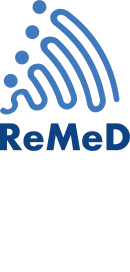This work package examines the conditions, professional roles and ethical standards, under which journalistic and alternative media content producers and their organizations operate in modern European societies, and how both groups (can) serve to revitalize democracy in Europe.
The analysis focuses on the working conditions as well as on the training and roles of journalistic and alternative media content producers in eight European countries.
It aims at identifying differences and similarities between journalists and alternative media producers by looking at the roles they play in the democratic process.
By exploring the career paths and professional views of journalists and alternative media producers, the study analyzes the trajectories of a possible professionalization of alternative media production.
Overall, the work package seeks to understand how professional journalists, alternative media producers and their organizations serve to consolidate democracy and cater to the public interest in Europe in light of growing challenges posed by dynamic political change and the spread of unverified information.
Finally, the work package explores new roles for journalists and alternative media producers in democracies, some of which are in decline. This democratic decline challenges traditional definitions of an independent, neutral and monitoring role of journalists in the political landscape.
The involvement of journalists and alternative media producers in political participation, political protest and the shaping of public opinion requires a new look at journalistic roles. As media ecologies and media systems change, the boundaries between professional roles and activism becomes blurred. Therefore, the work package reviews existing typologies of journalistic roles and enriches them considering the ambitions of alternative media producers in order to better understand the ecology of hybrid media systems.
